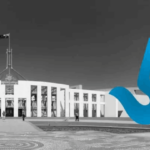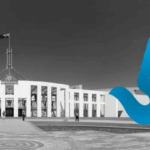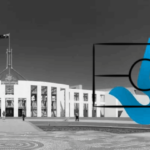Building a Rights-Centred Society: ALHR’s Kerry Weste on a Human Rights Act for NSW
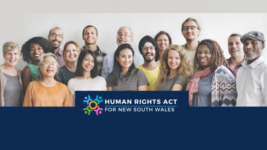
The NSW Bar Association and the Human Rights for NSW Alliance recently hosted a forum of legal experts, which included former High Court Justice Michael Kirby, and it discussed the need for a Human Rights Act (HRA) for NSW, as such protections have never been afforded to this state’s constituents.
Concerns around the lack of rights protections in this state have only been growing, ever-since the COVID pandemic brought this issue into sharper focus. And various states and territories already have enacted rights protections, which means that constituents in this state are at a disadvantage under local laws because for the most part their basic rights and freedoms aren’t guaranteed.
The Australia Capital Territory was the first jurisdiction in this country to protect its constituents rights when it passed the Human Rights Act 2004 (ACT). Victoria went on to enact its Charter of Human Rights and Responsibilities Act 2006 (VIC), while Queensland rolled out its Human Rights Act 2019 (QLD) not so long ago.
Forty-seven legal and civil society organisations have joined the Human Rights for NSW Alliance, which is co-convened by Australian Lawyers for Human Rights and the NSW Council for Civil Liberties. And the alliance includes the Human Rights Law Centre, Australian Lawyers Alliance, Equality, Redfern Legal Centre, the Tenants Union of NSW, the Inner City Legal Centre, the Australian National Imams Council and Deaf Australia.
“Based on freedom, dignity and equality”
The reason Australian governments have long been so reluctant to enact rights protections is that such measures result in the curbing of their power.
The passage of a HRA would not only provide protections to ensure individual rights are guaranteed, but such laws would improve the way governments develop laws and policies, as following the enactment of a HRA, such laws and policies must not infringe upon basic rights.
Human Rights for NSW outlines that the model of HRA that it is envisaging would establish a legal mechanism, whereby individuals in the community who have had an issue with their rights being infringed upon can go and seek recourse.
The alliance of legal organisations and civil society groups are further calling on the Minns government to establish an inquiry specifically probing the benefits that a Human Rights Act for NSW would bring.
Sydney Criminal Lawyers spoke to ALHR vice president Kerry Weste about the societal changes that a Human Rights Act would result in, the sorts of issues currently underway in this state that might no longer be problematic after basic rights are protected, as well as the growing support for the change.
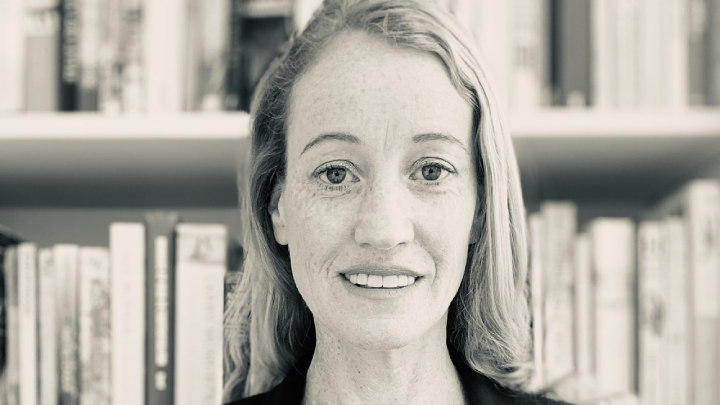
The Human Rights for NSW campaign, the NSW Bar Association and the Sydney University School of Law held a public forum on the need for state level human rights protections to be enshrined in law on 17 October, with the event having featured a panel of notable speakers, including former High Court Justice Michael Kirby.
The HRA4NSW campaign is comprised of 47 legal and civil society organisations convened by Australian Lawyers for Human Rights and the NSW Council for Civil Liberties.
Kerry, the 17 October HRA forum was a sold-out event. In terms of what was discussed, what are the key issues in seeing these sorts of protections progressed in this state and what’s the support like for a HRA in NSW?
As the Honourable Michael Kirby AC CMG noted in his keynote address that Thursday, perhaps the biggest challenge in progressing legislated human rights protections in New South Wales is, ironically, Australia’s long history of failing to legally protect human rights.
Australia is the only developed western democracy that does not have a bill of rights or a Human Rights Act. This means that human rights have not historically been embedded in the work of our federal, state and territory governments.
While the last twenty years has seen Victoria, the ACT and Queensland all enact comprehensive Human Rights Acts, NSW has not kept pace with community expectations that a democratic society based on freedom, dignity and equality must legally protect and articulate human rights.
The legislation in these other states has created a framework that has fostered a culture of human rights within and between their parliaments, executives, public authorities and the courts.
Many parliamentarians in NSW are still learning about the way in which a Human Rights Act for NSW will enhance and support their work as they go about formulating well-made laws and policies that prevent human rights violations before they occur and support their constituents by upholding the values people in this state hold most dear – justice, equality and a fair go for all.
But the great news is that we now have two decades of tangible evidence of the benefits of Human Rights Acts in other states and an alliance of more than 47 NSW organisations that serve the community are ready to work with all members of parliament to support a conversation about a Human Rights Act for NSW.
The people of NSW expect and deserve at least the same level of protection for their internationally recognised fundamental human rights as people in states like Queensland, Victoria and the ACT enjoy.
We know that many people in NSW are not aware that their human rights are not already protected in law.
We also know that Australians strongly support legislated human rights protections.
Research conducted by Amnesty International Australia and polling by the Human Rights Law Centre has found that when told they do not have this protection, between 73 percent and 83 percent of people show support for a Human Rights Act nationally.
Earlier on the same day as the HRA forum, the NSW Greens and a coalition of civil society groups gathered out the back of NSW parliament to hold a press conference about ongoing government attacks on the right to protest, and it was raised that this right should be enshrined in law, with a whole lot of other rights.
So, what sorts of social and political issues are of concern in this state at present that might not be so problematic if citizens did have their rights protected?
The Human Rights Acts already passed in the Australian Capital Territory (2004), Victoria (2006) and Queensland (2019) are benefitting people every day in concrete ways in relation to issues as diverse as access to housing, education, healthcare, aged care, policing and access to justice.
People in those states have been able to use their Human Rights Acts to resolve issues that continue to impact many people in NSW, for example, the inclusion of children with disabilities in childcare and school settings, the removal of unjustified restrictions on the freedom of movement of older persons within their aged care home, increased accessibility for people with disabilities on public transport and accessible public housing, or greater protections for people with cognitive disabilities in the criminal justice process.
At a more systemic level, we know from the experience in other states that a Human Rights Act will improve service delivery and policy formation across the NSW government.
For instance, the Victorian Charter requires that whenever a public authority uses contractors or other third parties to perform public functions on their behalf, the public authority must take steps to ensure they operate in a manner that is consistent with human rights.
Similarly, the ACT has guidelines to instruct government departments on how to consider the human rights protected in their Human Rights Act in the development of legislation and policy.
If our rights to peaceful assembly and freedom of association were protected in a Human Rights Act, it would provide an essential framework through which the NSW parliament and, for example, the NSW police and the courts can make balanced decisions that protect everyone in NSW.
This would mean that any laws or decisions taken limiting the right to peaceful protest need to be carefully examined to ensure that they do not go beyond what is reasonable and demonstrably justified in a free and democratic society based on human dignity, equality and freedom.
This will not only establish essential guardrails that protect our fundamental democratic freedoms and help prevent human rights violations before they occur, but it will also strengthen our democracy here in NSW by building a culture in which human rights become central to the making of laws, policies and decisions.
Having a Human Rights Act would also mean that if people think their rights – such as to peaceful protest – have been breached they have accessible pathways through which they can take action for a solution.
We’ve seen this in action in Victoria, for example when in 2013, two men living in public housing used the Victorian Charter to successfully challenge Victorian government rules that banned political rallies on public housing estates and banned residents from putting political information on noticeboards.
The two men, supported by the Human Rights Law Centre, advocated with government to change the new rules, arguing that the rules breached public housing residents’ rights to freedom of assembly and expression in the charter.
In response, the government revised the new rules to remove the bans.
Over recent years, the issues regarding the lack of rights protections in NSW, and at the federal level in this country, have become broader societal concerns, as many more constituents have come to realise the tangible effects that a lack of rights protections result in.
I interviewed a previous iteration of the Human Rights for NSW campaign in 2017, when it was just launching, and it was understood then that it was not the first such campaign in this state.
Why would you say that successive NSW governments, as well as federal governments, have been resistant to the provision of rights protections for constituents?
Getting back to what the Honourable Michael Kirby AC CMG said on the night, although there was discussion about a bill of rights at the time of Federation, in the end those arguing for it didn’t win that battle.
While every other comparable parliamentary democracies, like New Zealand, the UK and Canada, all moved on and introduced Human Rights Acts, Australia has remained stuck in the past.
Despite being a founding member of the United Nations and one of eight nations involved in drafting the UDHR (Universal Declaration of Human Rights), Australia has not followed through at home and this has led to a patchwork of ad hoc human right protections.
The impact of this is not only that people are left to fall through the cracks, fundamentally it has meant that we have not developed a modern democracy from within a culture of respect for human rights, understanding their protection as something that benefits individuals, communities and enhances the work of government, rather than something that encroaches upon parliamentary sovereignty.
A further significant consequence of these successive failures is that our politicians are not familiar with the way in which a Human Rights Act, and the domestic implementation of our international human rights treaty obligations, delivers the framework needed to protect all human rights equally and to proportionately balance rights.
The Human Rights for NSW campaign held a forum about 12 months ago as well. At that early meeting, the NSW Society of Labor Lawyers was one of the main organisers, along with ALHR and NSWCCL.
Labor members have raised the need for a Human Rights Act in state parliament over the year since then.
Kerry, what sort of support is there for a HRA in NSW parliament at present? And how likely is it that we will see some concrete action towards legislating rights in this state soon?
We are confident that support for and momentum toward a Human Rights Act for NSW has built significantly over the past year.
There has never been a better time for parliamentarians to have this conversation with the people of NSW.
As you have noted, we now have members of the government on the record with their support for an Act. We have two decades of learnings from the states and territories that have had the vision to protect human rights.
The South Australian Parliament’s Social Development Committee is currently conducting an inquiry into the potential for a Human Rights Act for SA.
The Australian Human Rights Commission’s Free and Equal Consultation has produced a comprehensive position paper and recommended a model Act.
The report of the Parliamentary Joint Committee on Human Rights (PJCHR) Inquiry into Australia’s Human Rights Framework, released on 30 May 2024, has proposed a model Act similar to those already implemented in the United Kingdom, New Zealand and in the ACT, Victoria and Queensland.
Both the Australian Human Rights Commission and the PJCHR emphasise that all states and territories yet to do so need to move towards introducing their own human rights legislation to ensure that all Australians receive the same protection for their rights, no matter where they live.
Here in NSW, we have the Law Reform Commission reviewing the Anti-Discrimination Act 1977.
This provides the perfect opportunity for parliamentarians to better understand the gaps in human rights protections in NSW and to follow up with the establishment of an inquiry into a human rights law for NSW that gives everyone in our state the chance to design a law that meets the needs of our many different communities.



